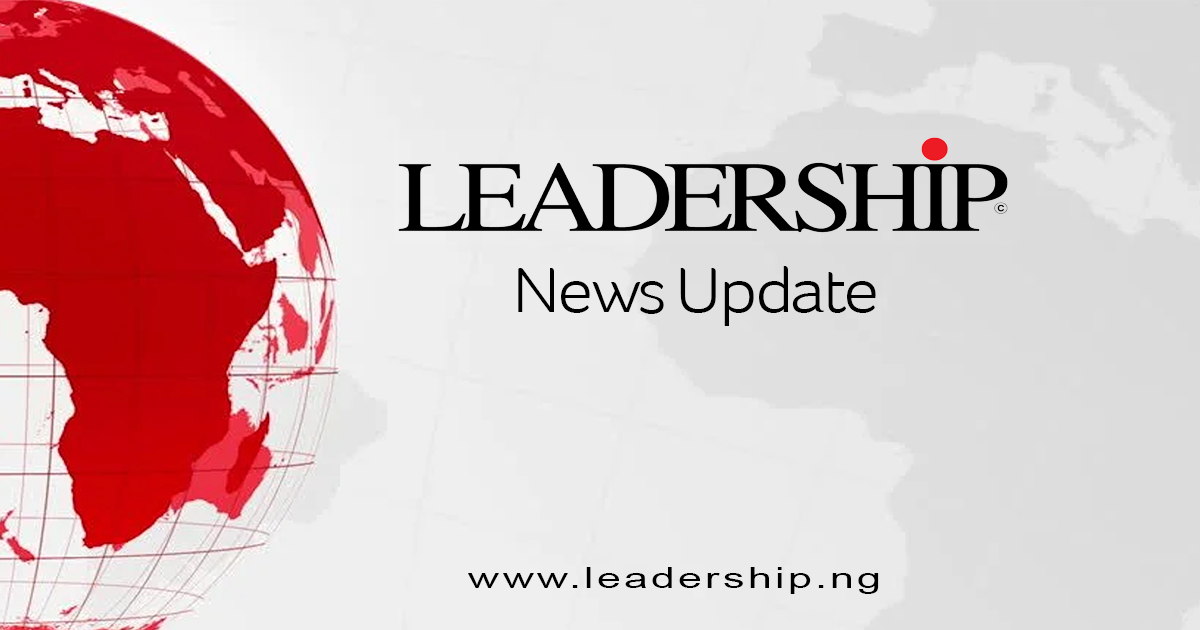Financial Reporting Council Sounds Alarm: Ethical Leadership Crisis Jeopardizes Economic Growth and Stability

The Financial Reporting Council (FRC) of Nigeria has issued a stern warning about the adverse effects that inadequate ethical leadership can impose on the country’s economic progress.
Dr. Rabiu Olowo, the FRC’s executive secretary and CEO, emphasized that ethical leadership is the foundation of economic stability and a vital element for Nigeria’s sustainable development over the long term.
During the panel discussion titled “Ethical Leadership: Strengthening Professional Accountants for Economic Transformation” at the launch of the 55th Annual Accountants Conference, themed “Building Resilience – Aligning Reforms for Nigeria’s Development,” Olowo highlighted how history consistently reveals that lapses in ethical conduct can dismantle organizations, economies, and even entire nations.
He reflected, “We recall the collapse of companies like Enron and WorldCom in the early 2000s-events that triggered sweeping financial reforms across the globe. Closer to home, numerous corruption scandals have shattered public confidence, depleted government resources, and discouraged investment.”
“In nearly every case, the root cause was not a lack of technical expertise but a failure in ethical decision-making.”
Olowo cautioned, “Without ethics, financial statements become unreliable narratives, investor confidence wanes, capital markets grow volatile, public institutions lose their legitimacy, and corruption thrives. Ethical breaches are not isolated mistakes-they expose systemic weaknesses.”
Speaking through Titus Osawe, the FRC’s coordinating director for Corporate Governance, Inspections, and Monitoring, Olowo stressed that Nigeria’s journey to unlocking its full economic potential must integrate moral integrity with reform efforts. He added, “Resilience that lacks ethical grounding is superficial. Reforms devoid of integrity are destined to collapse under doubt.”
He further pointed out that as Nigeria advances towards economic diversification, inclusive growth, and investment-driven development, reinforcing institutions that guarantee financial transparency and accountability is essential.
“Professional accountants are central to this mission,” Olowo affirmed.
“Our duty goes beyond mere financial calculations-we are the architects of national advancement. Positioned at the intersection of finance, governance, and development, we must lead with unwavering integrity.”
He reiterated the Financial Reporting Council of Nigeria‘s commitment to nurturing a generation of professionals anchored in ethical principles to drive the resilience Nigeria needs.
“Ethical leadership is more than just talk-it requires courage. The price of fleeting benefits gained through ethical shortcuts far exceeds any short-term advantage,” he emphasized.
To genuinely build resilience and align reforms with Nigeria’s developmental goals, Olowo insisted, “Every reform initiative must be deeply rooted in ethical conduct.”
The FRC is dedicated to partnering with all stakeholders to cultivate a nationwide culture of ethical leadership.
Olowo concluded, “This objective cannot be achieved by the Council alone. It demands that every accountant, board member, financier, and policymaker consistently uphold integrity.”
“Ethics is not a marginal issue; it is a critical driver of progress. Ethical leadership is not an obstacle to profitability-it is the foundation of sustainable growth.”
He underscored that embedding ethical leadership within institutional frameworks is imperative, not optional. Through the enforcement of key standards such as the Nigerian Code of Corporate Governance (NCCG) 2018, Audit Regulations (2020), and International Financial Reporting Standards (IFRS), the FRC ensures that ethical values are deeply integrated into financial reporting and governance.
Reaffirming this stance, Olowo stated, “As Nigeria moves forward with economic diversification, inclusive growth, and investor-led development, strengthening institutions that uphold financial transparency and accountability remains non-negotiable.”
“Professional accountants are at the core of this endeavor. Our role is proactive and transformative. We are not merely interpreters of numbers-we are nation builders, standing at the crossroads of finance, governance, and development.”







